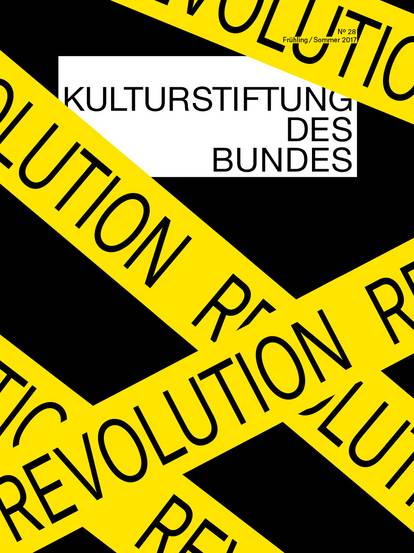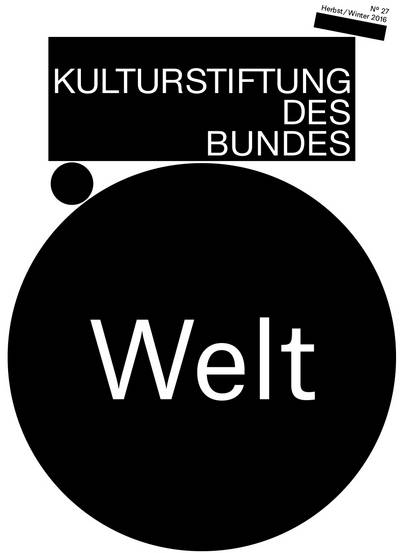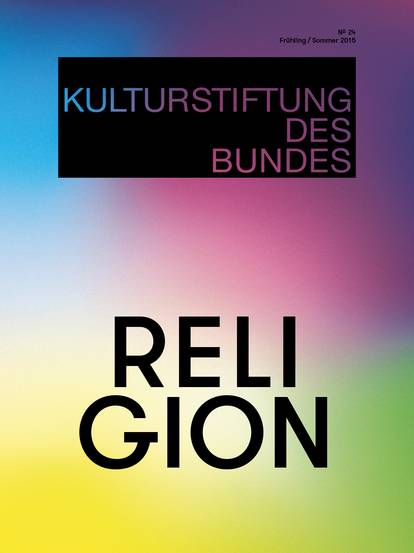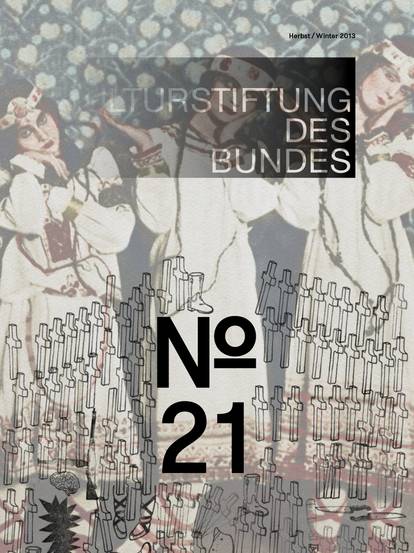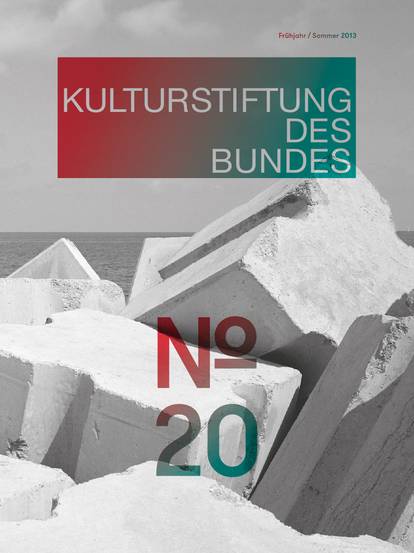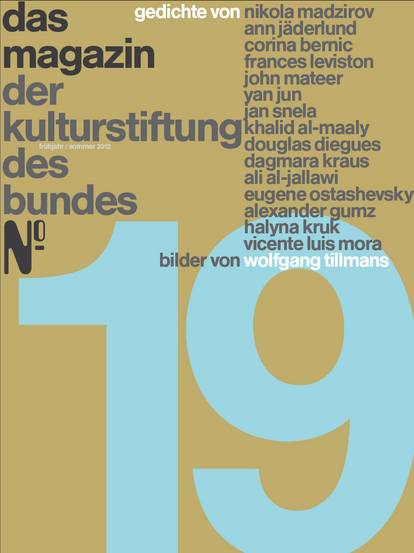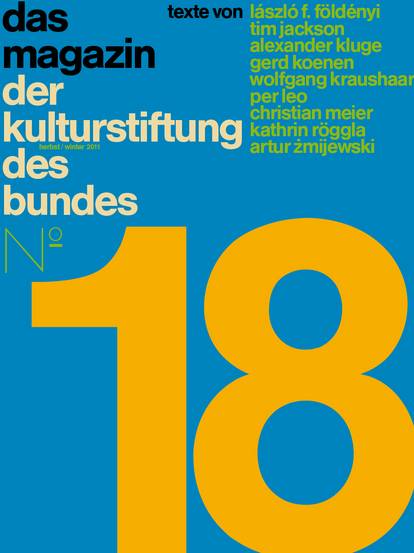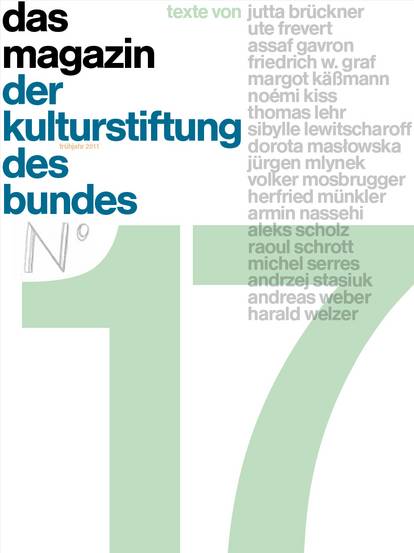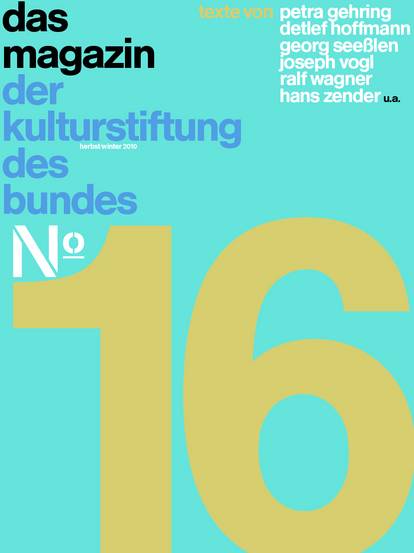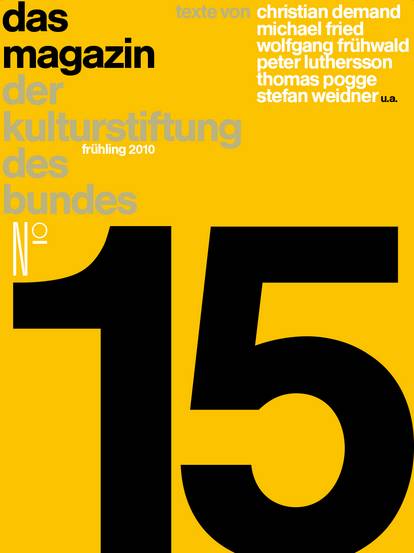No deal without God – Judaism, Christianity and Islam, the three Abrahamic religions, have established order in the world and its economy. But are their teachings applicable to the turbo-capitalism of today? Jacqueline Boysen speaks with the economist and philosopher Birger Priddat about personal responsibility and excessiveness, the accumulation of capital, disappointed expectations of salvation and the church tax as a flat rate.
Jacqueline Boysen: Money and faith, economy and religion – how are these terms related? They seem to have little in common.
Birger Priddat: Historically speaking, they belong together. The Jewish, Christian and Islamic religions arose in a world in which trade was highly developed. Let’s not forget, Mohammed himself was a merchant. Since the beginning of history, people have always asked who deserves what, what do people deserve – and what does God deserve? In our coexistence, we are constantly occupied with questions of negotiation, measure, calculation and fairness. And this naturally leads – at least in the three Abrahamic religions – to the economic mechanism. The distribution of all material and immaterial goods can be represented as a triangular relationship: human-human-God. For believers, every negotiated act with another human being is conducted under God’s observing eye, and every measure is one that must pass God’s muster. Each of the three major religious scriptures presents this triangle in a somewhat different form. In the New Testament, for example, the figure of Jesus Christ creates an additional, socially relevant category: the father-son relationship, the love of God, the charity and compassion that Jesus preached, and God’s mercy. While the Old Testament and Islam present us with a rather vindictive God who rules over life, the Christian variant – which I’d like to think of as being more enlightened – teaches personal responsibility before God and thus offers an additional category of social order, which by the way is a guiding principle in the order of the Church. Naturally, this obliges us to organise the markets in such way that the active parties can partake in the mercy of God.
JB: To what extent do religions contribute to the ethics of trade or economic activity?
BP: I’m sceptical as to whether one can derive a suitable ethics for economics from religion. We tend to ask ethical questions when discussing economy and religion, that is, we look to religions to derive dogma for economic activities. But for me, something else connects them. It’s the question of faith, the intensity of faith and conviction. What economy and religion have in common are the categories of hope, belief, and expectation –also a form of expectation of salvation or redemption. In this I recognise – at least here in Europe – parallels in the history of ideas, particularly in the oekonomia divina, the divine economy. It has nothing to do with our concept of economy, but rather refers to oikos, the house, the Greek domestic and economic community as the smallest unit of human coexistence, from which the early Romantic writer Novalis derived the “divine housekeeping of the universe” in the afterglow of God’s great housekeeping of creation of the Middle Ages. A creation-theological concept lies behind this, i.e. God knows what the world He created should be, He has already put His house in order and obliged its participants to keep its principles or rules. In the sense of a dominion theory, we recognise that we humans are servants who must comply with the order, servants who give and are provided for.
JB: So for believers, giving and taking in economic processes is equivalent to a deal with God?
BP: Yes, because if we were to depict these processes schematically we’d see that man gives unto God and God gives unto others. Take the example of the Samaritan who shares his cloak and acts on God’s behalf. The act of charity, the social deed is only of secondary importance; the gift is primarily an act between the Samaritan and God. At the same time, it benefits another person.
JB: The Samaritan donates his cloak while our economic system encourages material profit. There are passages in the Bible which we can interpret as a criticism of profit-mongering. In the New Testament, chapter 16, Matthew asks “For what is a man profited, if he shall gain the whole world, and lose his own soul?” We usually stop there, but Matthew asks a follow-up question: “Or what shall a man give in exchange for his soul?” – How does man achieve salvation?
BP: The Christian view is that man is basically good, especially when he shares and doesn’t accumulate profit for selfish purposes. Sharing is also the basis of order in other religions which allows one to remain a “believer” within the community and preserve this community. [Translator’s note: The German word “Gläubiger” can mean “believer” in a religious sense or “creditor” in an economic sense depending on the context]. We needn’t over-interpret the word “Gläubiger”, but it does describe a socio-economic relationship. One feels the need or obligation to donate money, and with this donation, support the existence of another. Naturally, this is no functional deal with God. But the basic premise is faith. He who doesn’t believe may donate as much as he’d like, but he’ll never partake in God’s mercy.
JB: Set not your heart upon the riches of the world, the Psalms warn, treasures don’t help because true wealth is granted by God. Are these Bible verses also valid in Judaism and Islam?
BP: The act of giving has a much more lawful character in Judaism and Islam. They explicitly command their followers to help the poor; giving alms is an integral part of culture and social life. It’s about providing for one’s existence in the here and now. Back to Christianity, we have the 13th-century Thomasian theology which differentiated between the human necessities and the superfluous, that is, everything we accumulate beyond that. You might ask who determines what is superfluous. Everyone must calculate that himself, which brings God back into the game, which brings us back to the matter of personal responsibility. By donating a certain amount – in other words, by way of this economic token – am I practicing enough charity to truly please God?
JB: Is penance a deal with God? The sinner simply pays to have his transgressions forgiven?
BP: Yes, after confessing and doing penance, one can regain the option of mercy. But the fees imposed on people in the Middles Ages were dubious and that’s what led to the schism between the pre-Reformation and the Reformation. Martin Luther recognised and revealed that absolution was a deal, but not so much with God as it was with the clergy. And exactly that was the Reformer’s point of contention.
JB: Nowadays when we experience the excesses of those who enrich themselves at the cost of society, it seems that the veneration of money has achieved religious absoluteness. Does capitalism have religious qualities?
BP: Everything we’ve discussed so far has described a vertical relationship: Me and Him, and He is the ultimate, recognised authority. Everything else is gauged on the basis on this relationship, how I maintain access to God and act in a good enough way to be rewarded. In our rational modern times, however, we follow a maximisation, or growth principle. This is where death plays a role. We regard death as final. Consequently, everything I want to achieve must be achieved in life, and profit is gained here in this world, while in the medieval view, it would be compensated in the world to come. The price of heaven has become an earthy one. And today the question of whether I believe or not is private. Capitalism has entered this complex equation of the money trade, credit, interest and personal pursuit of profit. This is not derived from religion, but it does present a comparable promise. In this way, it does have religious qualities. The economist Robert H. Nelson talks of “heaven on earth”, i.e. the promise of salvation redeemed not in heaven, but in this world – through the accumulation of capital.
JB: To what degree is this a perversion of the credo of the American Declaration of Independence which called for “life, liberty and the pursuit of happiness,” meaning personal freedom and material security?
BP: That is the great promise of liberalism. However, it drew criticism later in the 19th century. As disparities in wealth between property owners and the poor became more pronounced, the focus shifted to ensuring the welfare of society and, in the 20th century, ensuring growth. But now we’ve arrived at the end of social movements and the ideal of growth because present generations realise that growth – in the old sense of the world – is indeed finite. It’s reflected in issues like resource distribution, climate and energy – and with those, the promise of salvation is gone. We realise that capitalism is running on empty, its promise of redemption has gone up in smoke, and we think, my God, we can no longer gain entry to a better life. The expectations in China – which has a different religious and political character – are still alive. But we are re-defining growth for ourselves. It’s difficult, but justified – the relationship with money, banks, finance capital, credits, contracts can no longer meet our expectations of salvation. We recognise this sobering reality and have reached a point where the religious and economic no longer necessarily correlate.
JB: We no longer barter for basic necessities of life, but pay money in a labour-divided society – has money become a fetish?
BP: Yes, wonderful money … it’s naturally indispensable for transactions. We don’t barter anymore, we exclusively deal with money. The economy runs on credit financing, we earn profits from interest, derivatives, which of course are derived from credit – and in this sense, money is productive. But financial markets also work with speculative investments which are not real earnings and are no longer tied directly to production and labour. It only takes three people to set up a billion-dollar hedge fund, but it takes tens of thousands of hands to earn a profit at a steel plant. The promise of stocks – earning myself and others a profit while helping accumulate capital for the corporation which has a social impact as it benefits the workers and small investors – is broken. Earning profits to safeguard one’s living standards, which in a biblical context were obligations which served society, are no longer recognisable. When liquidity is injected into the financial markets, it’s siphoned away from the real economy, and has no further impact on the development of personal earnings. And this has nothing to do with religion at all.
JB: Only if you dispute the beneficial character of the financial markets in the sense of giving and taking as an act pleasing to God that you mentioned earlier.
BP: Yes, we’ve known this since the 19th century. The areas of speculation have grown so enormously, and we can no longer seriously regard the financial sectors as being part of the economic whole because they no longer offer any benefit to society. Faith or theological arguments can’t help us here. The dimension of human beings in life on the way to death should be reintegrated into the discussion of aspects of theology and economy, and I feel this is missing right now. What I’ve heard are the older catchphrases, reflections on growth, but nothing that does justice to the current developments.
JB: In times of crisis, matters of faith become more important. The religious market is growing while churches here at home are complaining about dwindling membership – what kind of consequences does this have?
BP: Many people nowadays have three to four different faiths; they’ve been socialised in a Protestant or Catholic way, but find something in Buddhism or Hinduism that appeals to them, they like yoga, Lao Tse and are fascinated by the Jewish faith, Islamic dervishes or some guru or another and are interested in shamans as well. We try out everything. Our need for spirituality is high; everyone can believe in every possible kind of denomination and take advantage of specific elements of faith from various religions. Those who no longer comprehend economic processes often look for explanatory models in the magical. Contained in this is that element of faith, the search for a higher order. And most importantly, it’s a search for the ultimate truth with regard to death. The broad spectrum of beliefs provides a multifaceted answer to the question of life after death – it’s preferable to have more options than none at all. To ease their anxieties, people put together a portfolio of religious patterns with the hope that one of them will work. So religious diversity has increased, but that has nothing to do with the major, unconditional faith and devotion to one God; it simply expresses the need for redemption.
And we observe how religions have conformed to the marketplace – they promise happiness or fulfilment, you don’t have to wait until you die, you can have hope immediately. And in line with the laws of the market, people are willing to pay through the nose for this. Many of these redemptive doctrines are not to be had for free. The only institutions which still offer spiritual welfare at low cost are the established churches. The church tax is like a flat rate, but for a capable shaman, you have to cough up 800 euros first…
JB: Some people equate the experiment with the shaman as humble piety, but is that legitimate?
BP: Yes, the God of worship has been replaced. That’s a consequence of the decline of the established churches, people don’t expect much from their own tradition, its influence is fading…The churches are brokerages or travel agencies, intermediaries. But when faith dwindles, the church is lost as the spiritual centre. People have started turning to other providers with the same intensity, and now polytheism is developing, the spectrum is broad and includes host of spirits, witches and demons, not to speak of angels.
But there’s no claim to truth anymore, the father figure which grants and takes life has shrunk and is being replaced by minor spirits, also exchangeable spirits. This is an expression of insecurity. No one has faith in time, in history. There’s only the wide-open present, like the literary scholar Hans Ulrich Gumbrecht says: It’s not about children having it better, the future is no longer the issue, it’s rather the path to salvation in the present.
JB: Is this typical Western thinking because it requires prosperity?
BP: Definitely. For example, in Islam there’s a completely different self-image. Muslims want to return to the origin, that is, the future is the origin, which explains why they have a tendency to be severe and interpret the Qu’ran literally. This also engenders pre-modern concepts of governance. The caliphates are oriented toward Mecca, highly centred on Allah. With such characteristics of Islam in place, everyone is under observation, which is interesting from a cultural-historical point of view because it affects the development of society. Its theology is hostile to progress, which is strange to us as we’ve been taught to subjugate the world. What’s missing in Islam is the impulse to develop society. This applies to economic development as well. It’s completely different with Jews, historically speaking – especially in view of the fact that Jews haven’t lived in closed communities during the course of their history, but rather in the Diaspora in contact with non-Jews, which in turn influenced trading activities with regard to the prohibition of interest and other restrictions. Much has to happen in life. That, too, is a fundamental concept, the hope of returning to Jerusalem, the return of the Messiah, the fulfilment of immaterial salvation.
JB: Mr. Priddat, how do you see yourself – as a believer or scientifically curious observer and analyst?
BP: I’m clearly an outside observer – and not because I left the Protestant church at the age of 16. But I’ve become increasingly convinced that faith in the economy and society still has a powerful impact today. I’m not critical of or condescending to other believers either. I think it’s possible that believers can manage their lives better.
If you look carefully at how financial investors manage their billions, you find that the expectation of interest is no longer rooted in knowledge or cut-and-dry calculations, but rather hope. There you see that the world, which superficially seems anything but religious, is religiously charged to the extreme. Structures of faith are at work here, they are present in the real world, and we have to take them seriously and address them in a discussion about theology and economy.
JB: Mr. Priddat, thank you very much for your time.

![[Translate to English:] Magazine 38](/fileadmin/_processed_/f/1/csm_Magazin38_Cover-Vorschau_921x1230_689f428dc3.jpg)
![[Translate to English:] Magazine 37](/fileadmin/_processed_/b/c/csm_Mag37_Cover-Vorschau_921x1230_b5129fdb2a.jpg)
![[Translate to English:] Magazine 36](/fileadmin/_processed_/2/a/csm_Cover_Magazin36__issuu_2f3cef97bb.jpg)

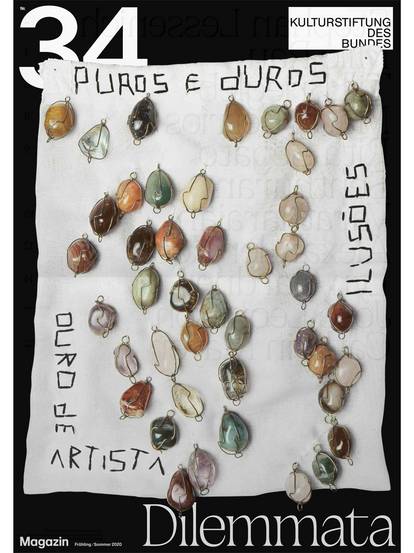
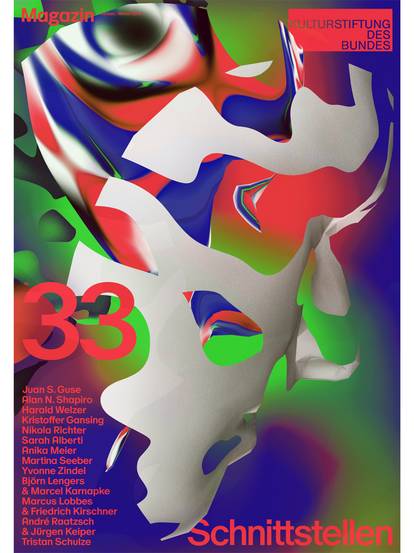

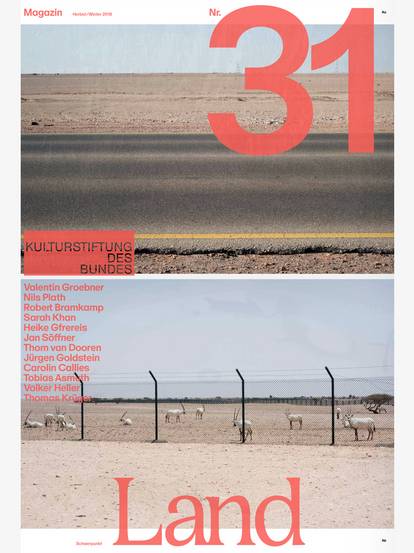
![[Translate to English:] Magazine 30](/fileadmin/_processed_/c/b/csm_magazin30_vorschau_9005f773d3.jpg)

